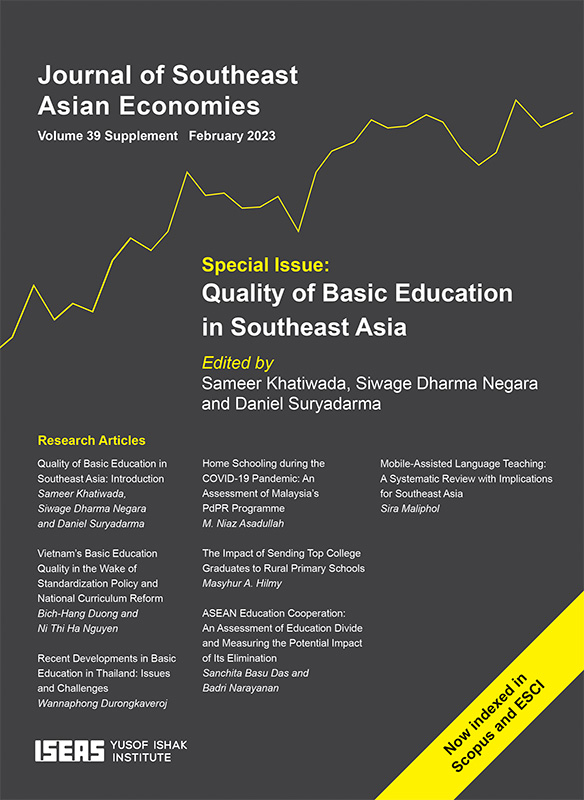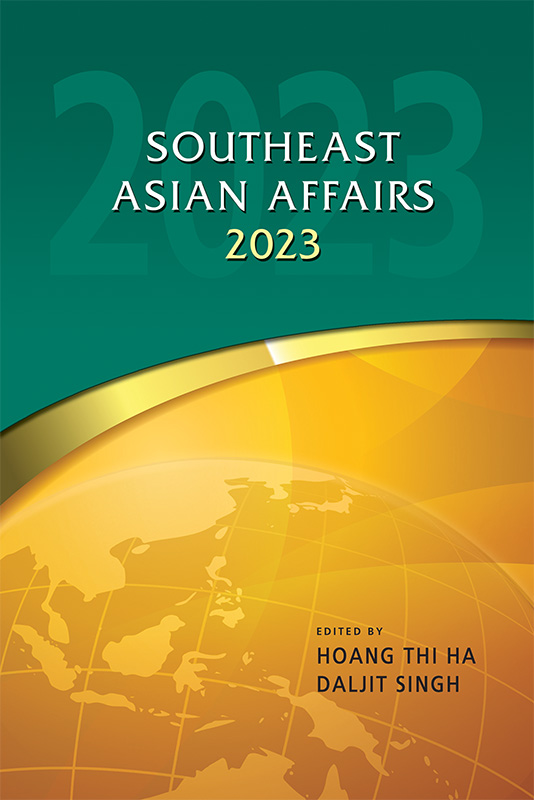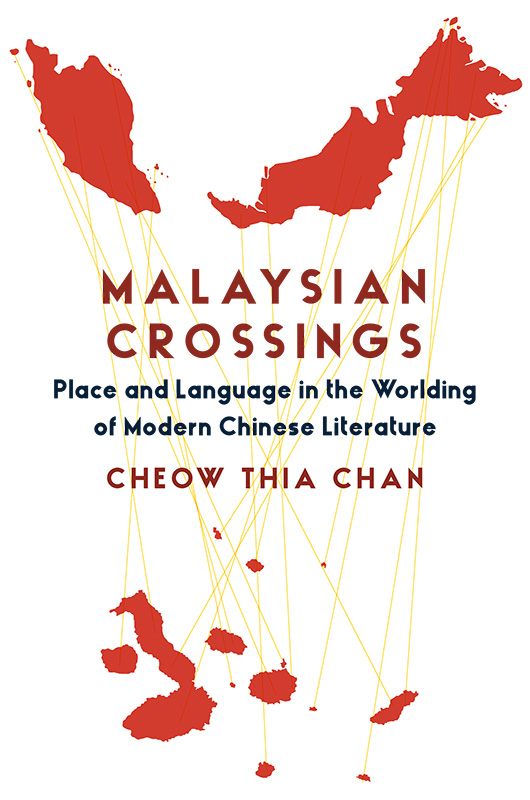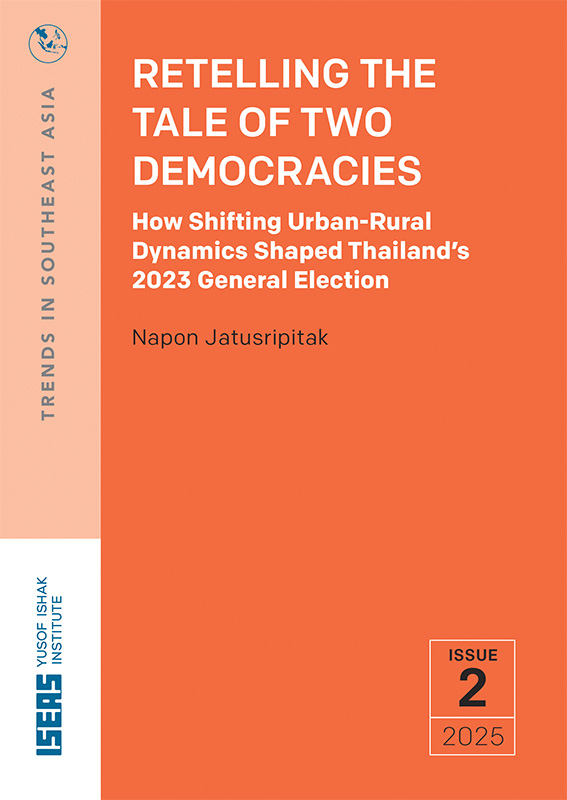Journal of Southeast Asian Economies, Vol. 39 Supplement (February 2023). Special Issue on "Quality of Basic Education in Southeast Asia"

Date of publication:
February 2023
Publisher:
ISEAS – Yusof Ishak Institute
Number of pages:
119
Code:
AE39/0
About the publication
The articles in this
Special Issue benefited from the conference organized jointly by the Asian
Development Bank Institute, Asian Development Bank and ISEAS – Yusof Ishak
Institute held in September 2021 in Singapore (https://www.adb.org/news/events/improving-quality-basic-education-southeast-asia).
There are multidimensional challenges in improving the quality of basic education and ensuring that all students acquire foundational literacy and numeracy skills. This has prompted various education-related reforms, programmes and non-governmental and non-profit organization-supported interventions. There are a few success stories but many more accounts of failure concerning educational reforms in the region. Amidst the situation described above, this special issue reflects the challenges and opportunities that Southeast Asian countries face in improving basic education quality. As a whole, this issue presents the latest empirical research on education in Southeast Asia. There are four country-specific papers -- Indonesia, Malaysia, Thailand and Vietnam -- and two regional papers. The six papers examine different unique research methods.
Contents
-
Journal of Southeast Asian Economies, Vol. 39 Supplement (February 2023)
[Whole Publication, ISSN: 23395206] -
Preliminary pages
-
Quality of Basic Education in Southeast Asia: Introduction, by Sameer Khatiwada, Siwage Dharma Negara, Daniel Suryadarma, authors
-
Vietnam’s Basic Education Quality in the Wake of Standardization Policy and National Curriculum Reform, by Bich-Hang Duong, Ni Thi Ha Nguyen, authors see abstractVietnam’s education development has been characterized as a success with impressive achievements in school enrolment and international standardized tests. The country’s outstanding performance is perceived to result from multiple factors such as purposeful policy, high levels of accountability and quality teaching. Among the recent policy changes for education quality enhancement, the adoption of the competency-based curriculum and professional standards for teachers is of heightened importance that has been observed in Vietnam’s current reform. This paper seeks an updated understanding of and explanations for the sector’s recent performance in terms of education quality. The study focuses on policy efforts and actual changes in the curriculum, teacher management and school-level standards management that aim to improve the quality of basic education. Drawing on a critical analysis of national policy, education reports and the related literature, this study highlights important developments and multiple challenges Vietnam experiences in implementing the standardization policy. Relevant implications for educational policy and practice in Vietnam and other countries will also be discussed.
-
Recent Developments in Basic Education in Thailand: Issues and Challenges, by Wannaphong Durongkaveroj, author see abstractOver the past few decades, Thailand has made progress in expanding access to basic education, increasing literacy rates and narrowing gaps in school attendance between socio-economic groups. This paper surveys recent developments in Thailand’s basic education with an emphasis on the learning outcomes of Thai students, the determinants of such outcomes, and the challenges faced by the basic education system. The study finds that, despite the significant amount of resources spent on education and the fact that the quality of the workforce is crucial for the country’s current stage of economic development, students’ learning outcomes are low and have not improved significantly in both national and international assessments. The performance of junior secondary school students in the national examinations has declined, especially in Mathematics and Science. While the performance of senior secondary school students has improved slightly over the same period, the mean results for core subjects were less than 50 per cent. This worrying figure is worsened by inequality in education quality across regions since the performance of secondary school students is lower in poorer, remote regions. According to the results of the international assessments, Thai students are performing below the international average in core subjects. This paper argues that such poor learning outcomes are presumably due to two main reasons: (1) differentiated management of small versus large schools and (2) inefficient resource allocation in public spending on education. This is a pivotal period in Thailand’s economic development. And substantial reforms are needed to ensure high-quality basic education for all.
-
Home Schooling during the COVID-19 Pandemic: An Assessment of Malaysia’s PdPR Programme, by M Niaz Asadullah, author see abstractGovernments worldwide have introduced various programmes to facilitate distance learning in home settings during the COVID-19 school closure. However, given cross-country variations in state capacity, these schemes differ significantly in design, delivery and coverage. Within-country variation in poverty and home conditions also create added challenges for home-schooling programmes. Therefore, case studies examining country-specific initiatives are necessary. To this end, this paper examines the Pengajaran dan Pembelajaran di Rumah (PdPR) in Malaysia, an upper-middle-income country with high Internet coverage and a low level of extreme poverty. Data come from a purposefully designed nationwide social media survey on secondary school children conducted in January 2021. Under the PdPR scheme, the government created various technology-based platforms to ensure online learning. By way of studying children’s participation in educational activities during school closure, this paper presents a descriptive assessment of PdPR. We first develop a conceptual framework to summarize the initiative. Then we examine the scheme in three aspects: the regularity of online lessons offered by school authorities; the extent of use of specific components and the medium of access of PdPR by learners; and their subjective evaluation of and difficulties faced with online schooling. Data confirm a significant socio-economic divide by income and location in access to EdTech as well as home support provisions. Most importantly, online lessons are irregular, and a significant proportion of students find online programmes challenging to follow. Given the dissatisfaction, most prefer to return to onsite education once schools reopen.
-
The Impact of Sending Top College Graduates to Rural Primary Schools, by Masyhur A Hilmi, author see abstractTeacher quality is crucial to delivering good education. However, improving teacher quality in developing countries can be a tough task. This paper investigates the impact of a teacher placement programme that sends college graduates with a strong academic track record to teach in rural primary schools in Indonesia on student test scores. Using a difference-in-difference approach, the study finds that exposure to programme teachers for a semester is associated with a 0.16 standard deviation increase in their students’ average mathematics scores. The weakest students benefited more, with an increase in score by 0.20 standard deviation. Students receiving direct instructions from programme teachers during scheduled classroom periods benefited even more. Attracting better talents to teach in rural schools could be an important pathway to improving the academic achievements of the weakest students at rural schools.
-
ASEAN Education Cooperation: An Assessment of Education Divide and Measuring the Potential Impact of Its Elimination, by Sanchita Basu Das, Badri Narayanan, authors see abstractQuality education is a key determinant for ASEAN’s aspiration to be a single market and production base and to attract foreign investment. However, the region is characterized by an education divide in terms of quality and output, and this is likely to increase in the post-COVID-19 period. A simulation, modelling a productivity increase in the education sector through an increase in the Human Development-Education Index for lagging ASEAN countries to the level of Singapore (benchmark country), shows that GDP, exports and consumption are poised to go up much more for the countries that lag farther behind Singapore in their education quality. This increases ASEAN countries’ potential to achieve outcomes from regional integration and hence provides an incentive to pay more attention to education cooperation, particularly by setting regional targets for improved education quality and output at the national level while linking education more intrinsically to ASEAN economic cooperation.
-
Mobile-Assisted Language Teaching: A Systematic Review with Implications for Southeast Asia, by Sira Maliphol, author see abstractCOVID-19 created a sudden move to online learning modes in Southeast Asia and the rest of the world, highlighting the need for updated teacher training to adopt computer- and mobile-assisted learning/teaching techniques. The changes in technology provide a multimedia platform that revolutionizes how people can interact through ICT, including for education. The results of mobile-assisted language learning (MALL) on student performance have not been overwhelmingly positive. Yet, the use of technology-based instruction tools seems inevitable. The proliferation of ICT technologies, including the Internet, broadband, and mobile technologies, will continue to increase and offer advantages to tap into. How are teachers—educational service sector workers—affected by technological change? Education systems in Southeast Asia can benefit from mobile-assisted language teaching (MALT) in ways that address the specific obstacles that are faced by countries in the region. This systematic review considers the topics covered in the literature on MALT for content analysis. The implications will be considered for educational contexts in Southeast Asia. The different strategies that are employed with ICT and/or mobile technology differ from traditional classroom learning. The systematic review findings suggest that the existing research is constrained by the type of technologies studied, especially a bias towards existing technologies.






